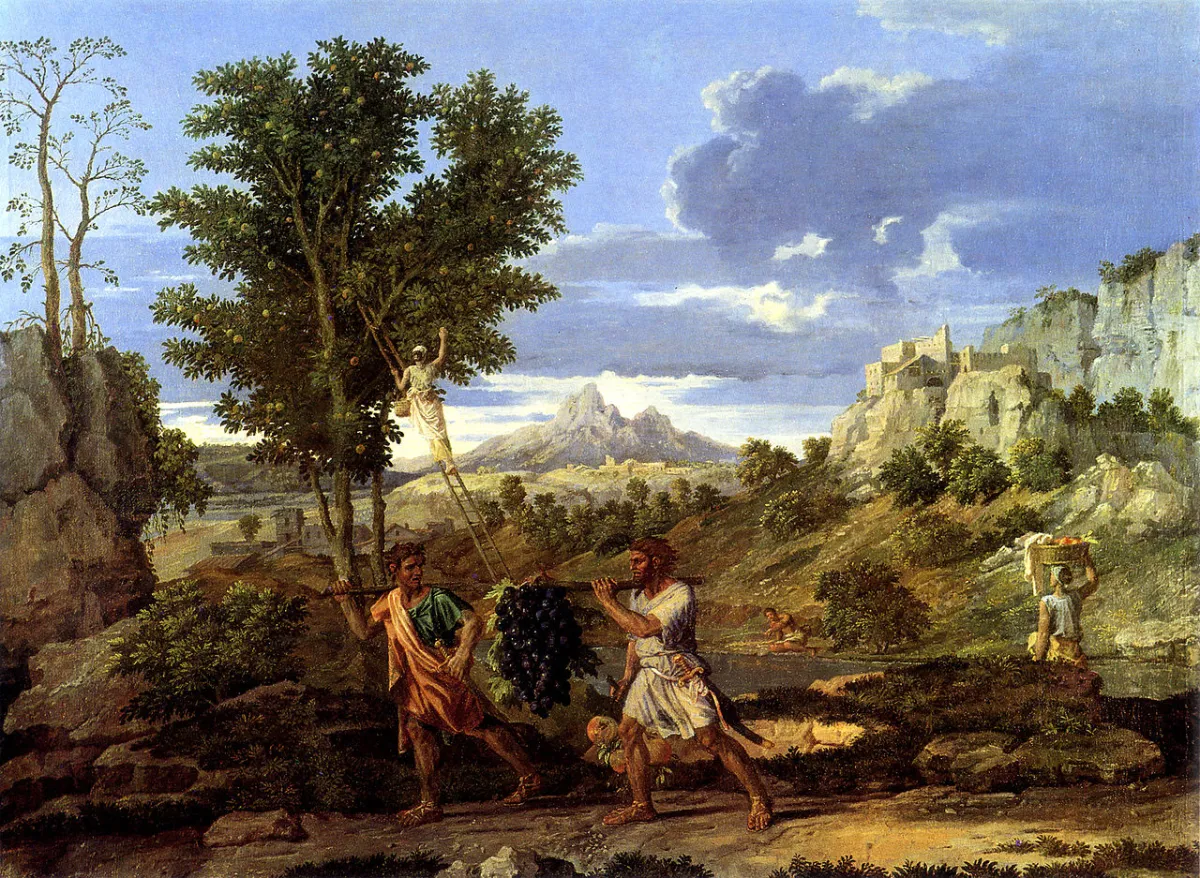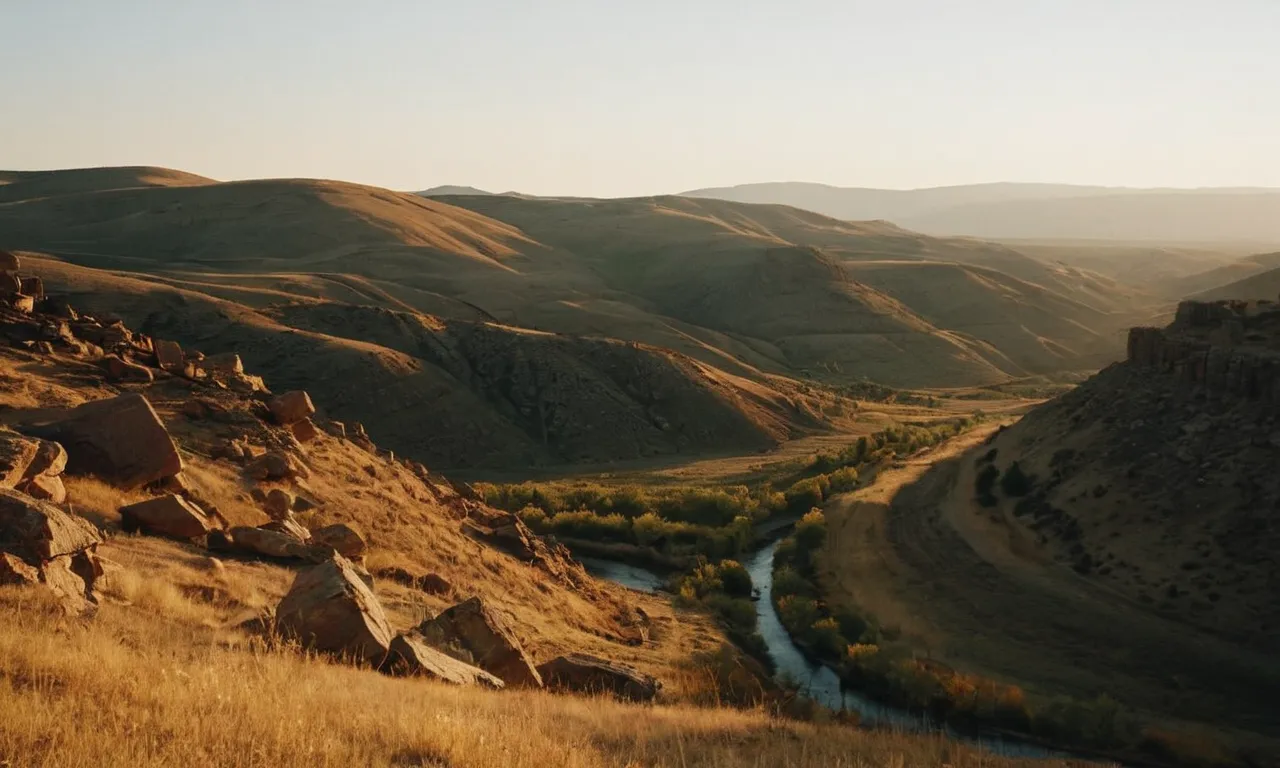What Does Canaan Represent In The Bible?
Canaan is a land filled with significance in the Bible. If you’re short on time, here’s a quick answer to what Canaan represents: Canaan represents the Promised Land that God vowed to give to Abraham and his descendants.
In this comprehensive guide, we will explore the layered meanings behind Canaan in the Bible.
We’ll look at Canaan’s geographical boundaries, the original Canaanite inhabitants, God’s promise of Canaan to the Israelites, and Canaan ultimately representing heaven and eternal life.
Where is the Land of Canaan?
The Land of Canaan refers to an area encompassing modern-day Israel, Palestine, Lebanon, southwestern Syria, and Jordan.
According to the Bible, God promised this land to Abraham and his descendants. Let’s explore more details about its location and geography.
Canaan’s Borders and Neighbors
Most scholars believe Canaan’s northern border was the Litani River in modern-day Lebanon. The eastern border likely extended to the Jordan Rift Valley.
Canaan’s southern reach remains unclear, but probably went as far south as Kadesh Barnea and encroached into the northern Sinai.
The Mediterranean Sea marked the entire western perimeter.
As for neighbors, Canaan bordered Philistia and the Mediterranean Sea to the west. To the south laid Egypt and the northern Sinai desert region.
The arid lands east of the Jordan River known as Ammon, Moab and Edom surrounded Canaan’s eastern flank. And to the north rested Phoenicia and Aram along the Litani River boundary.
Canaan’s Geography and Climate
Canaan featured diverse geographical areas. The coastal plains and lowlands characterized the Mediterranean west.
Lush river valleys cut through the landscape, including the Jordan Rift Valley in the east. Canaan also had forested hill country with cooler temperatures and ample rainfall.
The south transitioned into the arid Negev desert region.
This geography resulted in a Mediterranean climate with wet, mild winters and hot, dry summers. The coastline and northern valleys saw more precipitation, including strong seasonal rains.
Southern desert areas were prone to drought. The hill country featured pleasant spring and fall weather.
The Original Inhabitants of Canaan
The Canaanite Tribes and People Groups
When the Israelites entered Canaan, described as the “Promised Land”, it was already inhabited by various tribes and people groups collectively known as the Canaanites.
According to the Table of Nations in Genesis 10, the Canaanites were descended from Canaan, who was one of the sons of Ham.
Archaeologically, Canaanite culture first emerged in the mid-3rd millennium BCE, originating in the Levant region which encompasses modern day Lebanon, Syria, Jordan and Israel.
The major Canaanite subgroups mentioned in the Bible included the Hittites, Girgashites, Amorites, Canaanites, Perizzites, Hivites and Jebusites. These tribes mostly lived in fortified cities across the fertile valleys and plains of Canaan.
Canaanite Culture and Religion
The Canaanites had a thriving economic trade system and prosperous culture. Archaeologists have uncovered temples, palaces, houses and tombs that point to skilled building techniques and a flair for arts and crafts.
Distinct forms of Canaanite pottery had decorative motifs and designs.
Tablets found at major Canaanite sites contain administrative records and correspondence in an early alphabetic script.
Flourishing agriculture in Canaan was tied to worship of these deities.
The gods were believed to inhabit mountains, forests, rivers and springs. Archaeologists have found many figurines of Canaanite gods made of precious metals like bronze and ivory.
One of the darker aspects of Canaanite religious practice was the institution of temple prostitution and child sacrifice for religious reasons and to ensure prosperous harvests. The Bible condemns such horrible practices multiple times.
Nevertheless, by the Late Bronze Age, Canaanite culture had permeated the entire Levant region. But constant fighting between city states and attacks from outside forces eventually led to the collapse of Canaanite civilization by the 12th century BCE.

God’s Promise of Canaan to Abraham
The Covenant Between God and Abraham
According to the Book of Genesis, God made a covenant (solemn agreement) with Abraham, promising that his descendants would inherit the land of Canaan (Genesis 15:18-21).
This covenant was a significant turning point in biblical history, as God chose Abraham to be the father of a great nation.
To confirm his covenant with Abraham, God performed a symbolic traditional ceremony described in Genesis 15. As part of this ancient ritual, God had Abraham prepare a sacrifice of various animals.
Then Abraham fell into a deep sleep and God spoke to him in a vision, making astounding promises regarding his offspring.
God pledged to give Abraham an heir and countless descendants. He also promised to give Abraham’s descendants all the land from the river of Egypt to the Euphrates river – the territory of Canaan.
This covenant meant that Canaan would belong to Abraham’s future nation forever.
Canaan: The Promised Land for Abraham’s Offspring
The land of Canaan became known as the “Promised Land” because of God’s pledge to gift it to Abraham’s heirs.
Ages later, this covenant promise was ultimately fulfilled when Joshua led the Israelites to conquer Canaan after their exodus from Egypt.
The promise of Canaan gives keen insight into God’s blessed plan for Abraham’s line. By bestowing the land to Abraham’s offspring, God provided them a homeland and destiny. Possessing Canaan would enable the growth of Abraham’s descendants into a great nation that God could bless.
Thus, Canaan symbolized God’s faithfulness in fulfilling His covenant with Abraham – a central theme throughout Scripture.
Moreover, by offering Canaan, God prophetically set the geographical stage for future pivotal biblical events to unfold there.
For instance, Canaan’s central location connecting major ancient trade routes facilitated the rise and fall of successive kingdoms of Abraham’s posterity, including the kingdoms of Israel and Judah.
Additionally, centuries later, the land of Canaan became the birthplace of Christianity.
So while Canaan initially represented God’s covenant promise to Abraham, it ended up playing a major role in the remarkable story of salvation history found in the Bible – both Old and New Testaments alike.
The Israelite Conquest of Canaan
Joshua Leads the Israelites into Canaan
After Moses died, Joshua took over leadership of the Israelites. God commanded Joshua to lead the people across the Jordan River into Canaan, the land God had promised to them.
Spies were sent to scout the fortress city of Jericho, and Rahab helped hide the spies, allowing them to escape.
After crossing the Jordan River in a miraculous way, the Israelites set up camp at Gilgal on the plains of Jericho (Joshua 1-5).
Battles and Victories in Taking the Land
The first battle was conquering Jericho. Following God’s instructions, the Israelites marched around the city once a day for six days. On the seventh day, they marched around 7 times while the priests blew trumpets.
The people shouted, and the walls miraculously collapsed allowing the Israelites to charge in and capture the city. This victory spread fear throughout the land (Joshua 6).
Joshua then led the Israelites to victory over Ai with God’s help. After being tricked at first, they followed God’s command more closely the second time and were victorious (Joshua 7-8).
News of these victories caused other kings and people of Canaan to form alliances against the invading Israelites.
But God reassured Joshua by promising: “Do not be afraid of them; I have given them into your hand. Not one of them will be able to withstand you” (Joshua 10:8).
Joshua then led the Israelites to amazing victories over the southern Canaanite armies, culminating in a miraculous victory at Gibeon where God made the sun stand still for a whole day.
The northern Canaanite armies were later defeated when surrounding kings formed an alliance against the Israelites, but they too were delivered into the hands of Joshua by God (Joshua 10-11).
Victorious through God’s power, the land was then divided among the 12 tribes of Israel.
Conclusion
As we have explored, Canaan in the Bible holds deep meaning as the Promised Land where God led Abraham and his descendants. This fertile region first belonged to pagan groups until the rampaging Israelites claimed it.
Ultimately though, Canaan represents the paradise of heaven – an eternal inheritance for those who faithfully follow God.








